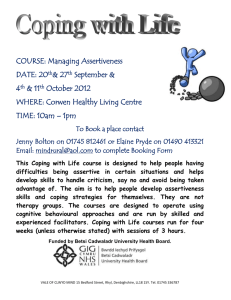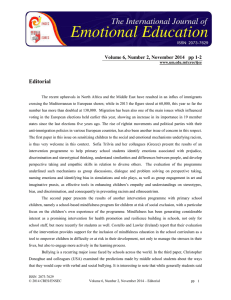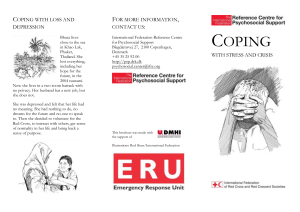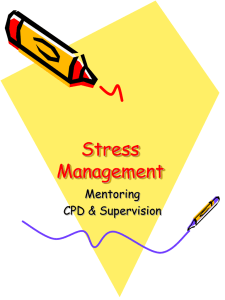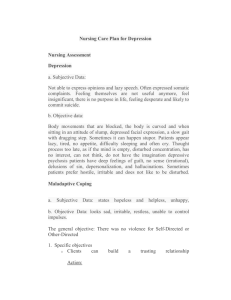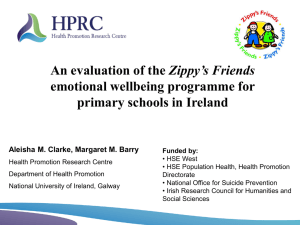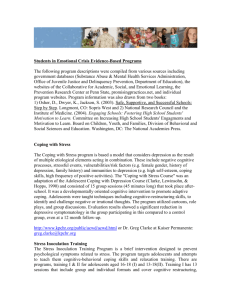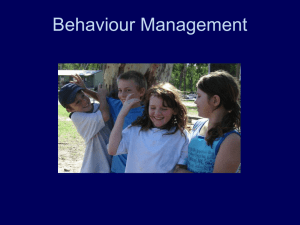Schools role in Emotional Health and Wellbeing
advertisement
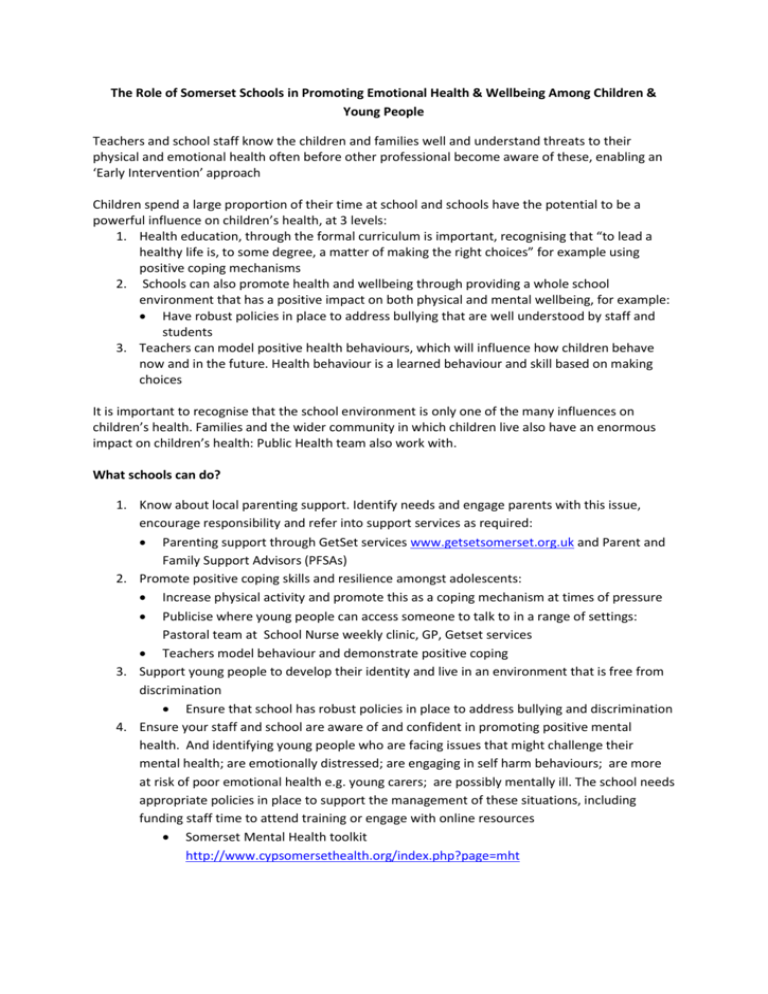
The Role of Somerset Schools in Promoting Emotional Health & Wellbeing Among Children & Young People Teachers and school staff know the children and families well and understand threats to their physical and emotional health often before other professional become aware of these, enabling an ‘Early Intervention’ approach Children spend a large proportion of their time at school and schools have the potential to be a powerful influence on children’s health, at 3 levels: 1. Health education, through the formal curriculum is important, recognising that “to lead a healthy life is, to some degree, a matter of making the right choices” for example using positive coping mechanisms 2. Schools can also promote health and wellbeing through providing a whole school environment that has a positive impact on both physical and mental wellbeing, for example: Have robust policies in place to address bullying that are well understood by staff and students 3. Teachers can model positive health behaviours, which will influence how children behave now and in the future. Health behaviour is a learned behaviour and skill based on making choices It is important to recognise that the school environment is only one of the many influences on children’s health. Families and the wider community in which children live also have an enormous impact on children’s health: Public Health team also work with. What schools can do? 1. Know about local parenting support. Identify needs and engage parents with this issue, encourage responsibility and refer into support services as required: Parenting support through GetSet services www.getsetsomerset.org.uk and Parent and Family Support Advisors (PFSAs) 2. Promote positive coping skills and resilience amongst adolescents: Increase physical activity and promote this as a coping mechanism at times of pressure Publicise where young people can access someone to talk to in a range of settings: Pastoral team at School Nurse weekly clinic, GP, Getset services Teachers model behaviour and demonstrate positive coping 3. Support young people to develop their identity and live in an environment that is free from discrimination Ensure that school has robust policies in place to address bullying and discrimination 4. Ensure your staff and school are aware of and confident in promoting positive mental health. And identifying young people who are facing issues that might challenge their mental health; are emotionally distressed; are engaging in self harm behaviours; are more at risk of poor emotional health e.g. young carers; are possibly mentally ill. The school needs appropriate policies in place to support the management of these situations, including funding staff time to attend training or engage with online resources Somerset Mental Health toolkit http://www.cypsomersethealth.org/index.php?page=mht Encourage staff to undertake online training through the MindEd resource as part of the mental health toolkit Ensure that where possible, some staff have attended youth mental health first aid training Ensure that your staff know how to respond to children and young people who are engaged in self harm http://www.cypsomersethealth.org/index.php?page=resources&area=14 Build a relationship with your primary mental health link worker (secondary schools) to ensure you can respond to urgent issues as they present for young people Promote the delivery of resilience/nurture groups in school and college settings Promote ‘Young Minds’ on line resources for adolescents and parents www.youngminds.org.uk 5. Create an environment that helps children and young people to ‘Be safe and feel safe’ Promote E safety and positive use of social media Challenge bullying Where there is a school concern about safety in the home make parents aware of substance misuse services, domestic abuse services or if there are child protection concerns follow local child protection procedures All these things will help young people stay healthy. They will help you help them. They will also reflect well on the school at Ofsted. Above all else, they will help make sure, more young people leave our schools making positive choices for themselves and have skills to protect their mental health.
